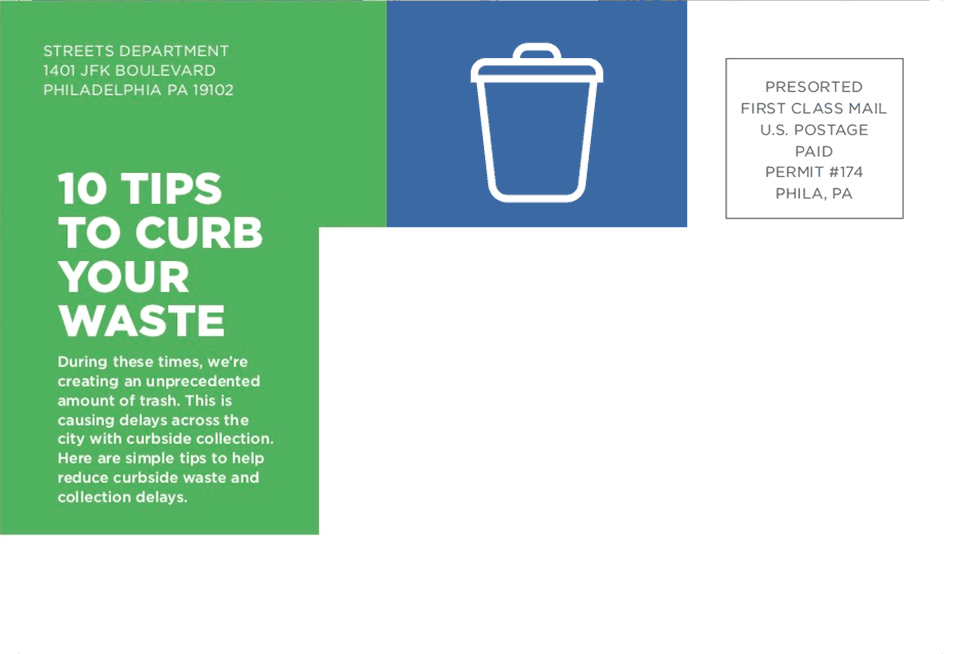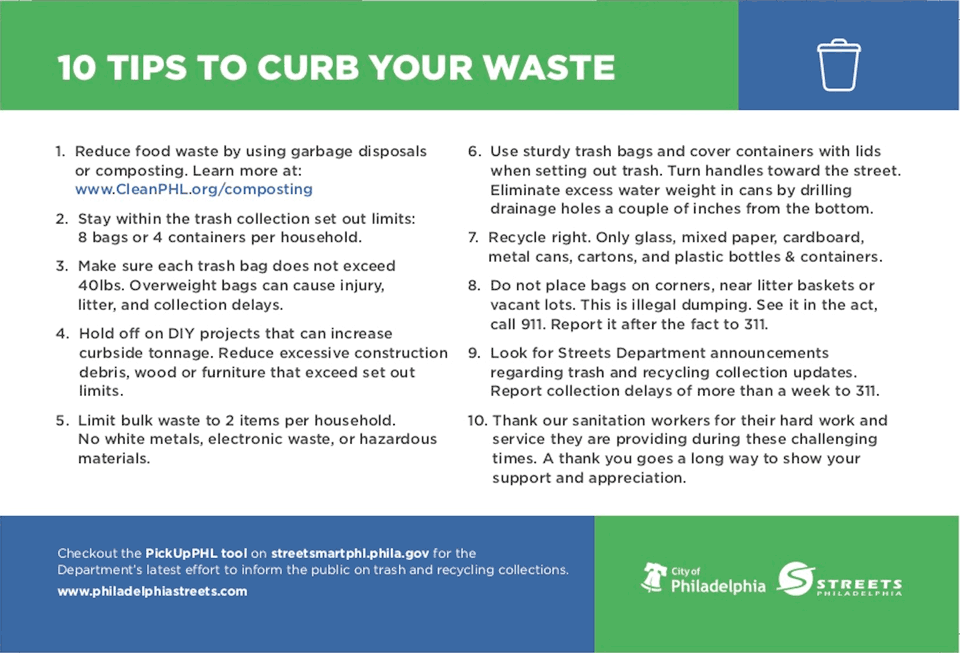Q&A with Philadelphia Streets Commissioner Carlton Williams
February 3, 2021
On January 21, Carlton Williams, streets commissioner of the Philadelphia Streets Department, participated as a keynote panelist for Virtual WASTECON during the session, “Outside the Box: Reinventing Your Organization in Response to COVID-19”. Williams highlighted the challenges the Department experienced during the COVID-19 pandemic and what actions it took to address them. After the panel, he answered questions about the Department’s efforts.
How has the Philadelphia Streets Department been impacted by the pandemic?
Williams: The Streets Department was challenged with delivering some of its core services including the collection of curbside trash and recycling. The Department experienced significant collection delays this past summer. With the COVID-19 outbreak the Department saw increased household tonnage up to 30% as a result of residents staying home as well as staff attendance issues caused longer than usual collection delays. Severe rainstorms causing downed trees and flooding also hampered crews’ ability to collect materials on time.
What goals did you prioritize as the pandemic began to negatively affect your organization?
Williams: Philadelphia’s Stay-at-Home Order required many residents to stay inside their homes. As a result, household trash tonnage significantly increased. The volume of material varied across the city, making it difficult to provide an exact schedule for the collection of materials. At times, the collection delays extended as far as four days behind schedule. To return to an on-time collection schedule the Department had to prioritize its goals to deliver its most, visible core service.
- Prioritize trash collections, over recycling to mitigate health risks
- Support workforce by providing additional personnel, proper PPE and maintaining COVID work protocols
What actions did the Streets Department take to address collection delays?
Williams: The Streets Department executed various tactics to address the collection delays. It quickly went into action to deploy its own resources and work with other City departments to implement solutions.
- Supplemented collections with staff from its Highways Division and other City departments
- Hired over 150 part-time employees to supplement staffing levels
- Modernized systems to capture and display data in real-time utilizing technology and GPS to increase efficiencies in route monitoring
- Utilized various communications tactics to inform the public
How did the Streets Department communicate its challenges and progress to the public during the pandemic?
Williams: Since the pandemic prompted many residents to spend much more time at home generating an excessive amount of trash, the Streets Department initiated its Curb Your Waste Campaign which offered resident 10 simple tips to encourage them to reduce their waste. The campaign expressed how excessive trash tonnage contributed to delays across the City with curbside collection service helping to create litter conditions, cause horrible odors and attract insects and pests.
At the height of the pandemic, the Streets Department was challenged as to how to convey to residents the magnitude the pandemic had on the Department. To keep residents updated on the progress of collection delays and demonstrate accountability, the Streets Department increased its transparency of information and included additional opportunities to communicate with the public.
- Weekly press releases
- Increased social media posts
- Daily trash and recycling blog on website
- Mid-week collection updates
- Op-ed published in the local newspaper
- Citywide text messages
Example of a Mailer from the Curb Your Waste Campaign

|
How did the Streets Department leverage technology to address challenges during the pandemic?
Williams: The Streets Department recognizes delays in trash and recycling collections have a significant impact, especially during the pandemic. In September, the Department launched PickupPHL, a new web mapping tool designed so residents can view and track the status of daily trash and recycling collections in near real-time. The platform also allows users to determine if a block has been visited by a trash, recycling or both trucks and identify where collections are taking place daily. For the first-time ever Philadelphia residents can see the daily progress on residential collection routes. PickupPHL is the third component of the Streets Department’s StreetSmartPHL platform. Residents can access the site at www.StreetSmartPHL.phila.gov.
About the Author:

For over 20 years, Carlton Williams has led a distinguished career in public service, working in several major Philadelphia departments. As streets commissioner, he furthers his commitment to service by overseeing the third largest City department impacting Philadelphia residents.
While deputy commissioner of Sanitation, he improved the City’s recycling rates, saving the City millions of dollars each year. As commissioner, he leads the department in forward-thinking and innovation as demonstrated in the StreetSmartPHL platform, the city’s first online mapping tool designed to connect residents and other stakeholders to real-time information related to permits, paving, snow plowing, and trash and recycling collections. Its components—PavePHL, PermitPHL, PickupPHL, and PlowPHL—provide direct access to the department’s core services. He continues to focus on environmental stewardship through programs and initiatives like the annual Philly Spring Cleanup and the BigBelly program.







Leave a comment